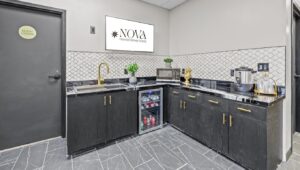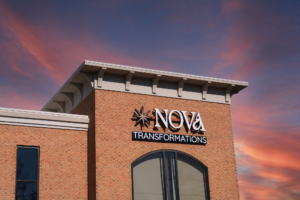Substance Abuse Treatment Selection
Choosing the right treatment for prescription drug abuse is vital for effective recovery. Understanding the options available can empower you to make informed decisions for yourself or a loved one.
Understanding Your Options
When considering prescription drug rehab, you will encounter several types of treatment programs. Each program has its own unique structure and benefits. The two primary treatment categories are inpatient and outpatient programs.
| Treatment Type | Description | Typical Duration | Suitable for |
|---|---|---|---|
| Inpatient | Intensive residential treatment with 24-hour support. | 30-90 days | Severe substance use disorders, co-occurring disorders. |
| Outpatient | Flexible treatment allowing patients to live at home. | 3-6 months or longer | Mild to moderate substance use disorders, those needing ongoing support. |
Inpatient treatment, also known as residential treatment, is designed for individuals with serious substance use disorders. These programs provide a controlled environment where patients receive continual medical and emotional support (Addiction Center). On the other hand, outpatient programs offer more flexibility and can include options such as partial hospitalization or intensive outpatient programming.
Evaluating Personal Needs
Taking time to assess personal needs can greatly influence the effectiveness of treatment. Factors like severity of addiction, co-occurring mental health conditions, and support systems at home will impact your decision-making process. Consider the following questions:
- Are you or your loved one struggling with severe addiction that requires constant supervision?
- Is there a solid support network that can help during outpatient treatment?
- What are the personal health conditions that might need to be addressed?
By thoroughly evaluating these factors, you can tailor your treatment approach. Additionally, be mindful of the risk factors associated with prescription drug abuse, such as age, health conditions, and the likelihood of combining drugs with alcohol. This analysis will allow for a more personalized and effective recovery plan.
To explore further information about inpatient or outpatient options, consider checking out our pages on inpatient drug rehab and outpatient drug rehab programs.
Importance of Specialized Programs
Choosing the right treatment program is crucial in your journey toward recovery. Specialized programs like inpatient and outpatient treatment each offer unique benefits, addressing various needs associated with substance use disorders.
Benefits of Inpatient Treatment
Inpatient treatment programs, also known as residential treatment, provide an intensive and immersive environment for individuals struggling with serious substance use disorders (SUDs). These programs require patients to stay in a controlled setting, ensuring that they receive 24-hour medical and emotional support. The following table outlines key benefits of inpatient treatment:
| Key Benefits | Details |
|---|---|
| 24/7 Medical Supervision | Patients are monitored closely during detox, allowing healthcare professionals to manage withdrawal symptoms and prevent relapse. |
| Structured Environment | A safe and drug-free space helps to eliminate distractions and triggers, promoting focused recovery. |
| Comprehensive Care | Patients receive not only medical assistance but also psychological support, addressing co-occurring mental health conditions. |
| Therapeutic Activities | Access to various therapies such as individual, group, and family therapy enables deeper exploration of addiction. |
Inpatient treatment typically includes a medically assisted detox phase, ensuring that patients have the necessary support as substances exit their systems. Knowledgeable clinicians are available to provide medications to alleviate cravings and withdrawal symptoms, specifically for substances like heroin and alcohol, where withdrawal can be critical.
Outpatient Treatment Considerations
Outpatient treatment offers a more flexible alternative to inpatient programs, beneficial for individuals with milder substance use disorders or as part of a long-term recovery strategy. This option allows you to manage treatment while continuing to live at home or in a sober living environment. Below is a summary of the benefits of outpatient treatment:
| Outpatient Treatment Aspects | Details |
|---|---|
| Flexible Schedule | Sessions can be scheduled around work and family commitments, ensuring that everyday responsibilities aren’t disrupted. |
| Longer Duration | Programs generally last from 3 to 6 months, or even longer for some cases, providing ongoing support without full-time commitment. |
| Partial Hospitalization | Higher levels of care, such as partial hospitalization and intensive outpatient programs (IOP), offer structured environments while allowing return home each day. |
| Community Connection | Being able to stay at home or work links you more closely with family support, which is often essential for encouragement during recovery. |
Outpatient treatment may be less expensive than inpatient options due to the lack of 24/7 supervision, making it accessible for individuals who need a supportive framework without the intensive commitment. You can explore more about outpatient drug rehab options available.
No matter the choice between inpatient or outpatient programs, prioritizing the right level of care for you is essential for achieving long-term sobriety. Assess your personal needs and consider the best approach as you navigate your recovery journey.
Factors Influencing Treatment Choice
When selecting a prescription drug rehab program, there are several critical factors to consider. Understanding the financial aspects and potential legal implications can help you make an informed decision regarding treatment options.
Cost Analysis and Funding
Cost is often a significant factor in determining the type of treatment you or your loved one will pursue. Typically, inpatient treatment programs are more expensive than outpatient programs. This is due to the continuous medical care and psychotherapy provided to patients in an inpatient setting. However, choosing the best treatment route should focus primarily on individual needs and the path to recovery rather than solely on cost considerations.
Here’s a breakdown of approximate costs for various treatment options:
| Treatment Type | Estimated Cost |
|---|---|
| Inpatient Drug Rehab | $20,000 – $60,000 per month |
| Outpatient Drug Rehab | $5,000 – $10,000 per month |
| Partial Hospitalization Program | $10,000 – $30,000 per month |
If finances are a concern, many facilities, including Nova Transformations, may offer financing options or connect you with funding sources that can assist in covering the costs of treatment. It’s essential to verify insurance coverage as well, as many plans can help mitigate out-of-pocket expenses.
Legal Justice System Involvement
For individuals involved in the legal justice system, various factors can influence treatment choice. Treatment planning requires a detailed assessment of the individual’s substance abuse history, including patterns of use and family history, which are vital for creating an effective recovery plan (NCBI Bookshelf). Assessing the severity of the substance use disorder is crucial, potentially leading to a diagnosis that informs treatment direction.
Clients’ motivation and readiness for change significantly impact treatment compliance and success rates. Motivation can often dictate whether an individual adheres to the prescribed treatment plan (NCBI Bookshelf). Individuals involved in the criminal justice system may have alternative treatment options available, including programs specifically designed for those with legal issues. If you’re seeking further information on tailored treatment options, explore our dual diagnosis treatment.
In navigating these factors, reliable support systems like addiction recovery communities can be beneficial in assisting individuals involved with the legal system to engage with and complete their treatment effectively. Addressing both the addiction and any legal repercussions is vital for achieving long-term recovery.
Medication-Assisted Treatment
Medication-Assisted Treatment (MAT) plays a crucial role in the recovery journey for those struggling with substance use disorders. This approach combines FDA-approved medications with counseling and behavioral therapies to provide a comprehensive treatment plan.
FDA-Approved Medications
The FDA has approved several medications to treat alcohol use disorders (AUD) and opioid use disorders (OUD). These medications are designed to alleviate withdrawal symptoms and cravings, helping to normalize brain chemistry and restore regular body functions. Below are common FDA-approved medications used in MAT:
| Substance Use Disorder | FDA-Approved Medications |
|---|---|
| Alcohol Use Disorders | Acamprosate, Disulfiram, Naltrexone |
| Opioid Use Disorders | Buprenorphine, Methadone, Naltrexone |
- Acamprosate: Helps reduce cravings for alcohol after you have stopped drinking.
- Disulfiram: Causes unpleasant reactions when alcohol is consumed, thus deterring users from drinking.
- Naltrexone: Blocks the effects of opioids and is effective in preventing relapse for both alcohol and opioid use.
Buprenorphine has emerged as a significant option for OUD treatment, as it is the first medication that can be prescribed or dispensed in physician offices, greatly improving access to treatment. Methadone is another well-known medication used for treating OUD, classified as a Schedule II controlled medication.
Role of Medications in Recovery
Medications used for substance use disorders are clinically driven and tailored to meet each patient’s needs. The goal of MAT is to provide a holistic approach that supports the patient’s recovery journey. The successful implementation of a treatment plan relies heavily on the individual’s motivation and readiness for change, which are significant predictors of compliance and overall treatment outcomes (NCBI Bookshelf).
MAT works by:
- Reducing withdrawal symptoms and cravings, which allows individuals to focus on their recovery.
- Stabilizing brain function and chemistry to decrease the likelihood of relapse.
- Supporting behavioral health changes through therapy, combining medication with counseling and behavioral interventions.
Choosing a reputable program like Nova Transformations can provide you or your loved one access to effective MAT and comprehensive support to foster a lasting recovery. For more information on substance use treatment options, explore our resources on opioid rehab, alcohol rehab, and dual diagnosis treatment.
Complementary Therapies in Treatment
Incorporating complementary therapies into your recovery plan can enhance the effectiveness of traditional treatments for substance use disorders. Nova Transformations recognizes the value of holistic approaches, including mindfulness-based strategies and alternative healing modalities, to support your journey towards sobriety.
Mindfulness-Based Approaches
Mindfulness practices, such as meditation and mindfulness-based relapse prevention (MBRP), offer various benefits for individuals in recovery. Mindfulness meditation has been shown to help with depression, anxiety, pain, and stress coping, which are common issues faced by those with substance use disorders. This method can assist in maintaining emotional regulation and promoting overall mental health.
MBRP integrates mindfulness meditation with cognitive therapy skills aimed at preventing relapse. The program typically consists of eight weekly sessions led by trained meditation instructors, focusing on motivated individuals who have completed initial treatment. This approach encourages lifestyle changes to support your recovery goals, enhancing your ability to cope with triggers and prioritizing your well-being.
Another valuable mindfulness practice is yoga. Yoga can reduce stress and tension, which contribute to relapse risk factors. Preliminary research suggests that various styles of yoga, such as Hatha and Vinyasa, may serve as effective adjuncts in recovery. Incorporating yoga into your routine may not only promote physical well-being but also support your emotional healing (VA.gov).
Alternative Healing Modalities
In addition to mindfulness approaches, alternative therapies can play a significant role in treatment. Energy work therapies, such as Reiki, have been utilized with success in aiding addiction recovery. Reiki works by harnessing external energy to facilitate healing and has been proven effective not only in addiction treatment but also for conditions like anxiety and depression (Enlightened Recovery).
Experiential therapies, including art, music, and equine therapy, allow you to explore and process emotions such as anger, hurt, and shame. These approaches can serve as powerful tools in uncovering and addressing feelings that may have contributed to addiction, leading to a more profound healing experience (Enlightened Recovery).
In addition to these therapies, integrating a variety of complementary options can enhance your recovery journey. Nova Transformations offers a range of services, including medication-assisted treatment, individual therapy, and group therapy addiction treatments. Consider complementing your treatment plan with therapies that resonate personally with you to promote holistic recovery and lasting change.
Aftercare and Continued Support
Mutual Support Groups
Mutual support groups play a vital role in the recovery journey for individuals overcoming substance abuse. Programs like Alcoholics Anonymous (AA) and Narcotics Anonymous (NA) are instrumental within many treatment frameworks. These self-help groups provide ongoing care and community support for individuals recovering from addiction. According to the National Library of Medicine, participation in these groups can help you change behavior patterns, maintain abstinence, and build new social networks, while also avoiding stressful situations that may trigger substance use.
These support groups follow the 12-step model and encourage members to share experiences and offer encouragement to one another. The camaraderie and understanding found within these groups can significantly enhance your recovery process and help foster a sense of belonging.
| Benefits of Mutual Support Groups |
|---|
| Helps maintain long-term sobriety |
| Provides a supportive community |
| Offers shared experiences and coping strategies |
| Encourages accountability |
| Reduces feelings of isolation |
Importance of Long-Term Sobriety
Achieving long-term sobriety is an essential goal for anyone recovering from substance abuse. Studies have shown that maintaining abstinence for two years dramatically increases the likelihood of remaining drug- and alcohol-free for up to ten years afterward. In fact, nearly 90% of individuals who remain abstinent for two years maintain their sobriety long-term (National Library of Medicine).
Several factors contribute to successful long-term recovery, including the duration of the treatment program. Individuals who engage in treatment for at least three months often see better outcomes. Participation in aftercare support programs, such as continuing with mutual support groups like those mentioned above, further enhances the recovery journey.
Additionally, addressing any co-occurring disorders through related treatments can bolster one’s chances of maintaining sobriety. Following a structured program post-treatment, such as intensive outpatient programs or partial hospitalization programs, can be instrumental in sustaining long-term recovery. Providing continued support and resources increases your likelihood of living a life free from the grips of addiction.








